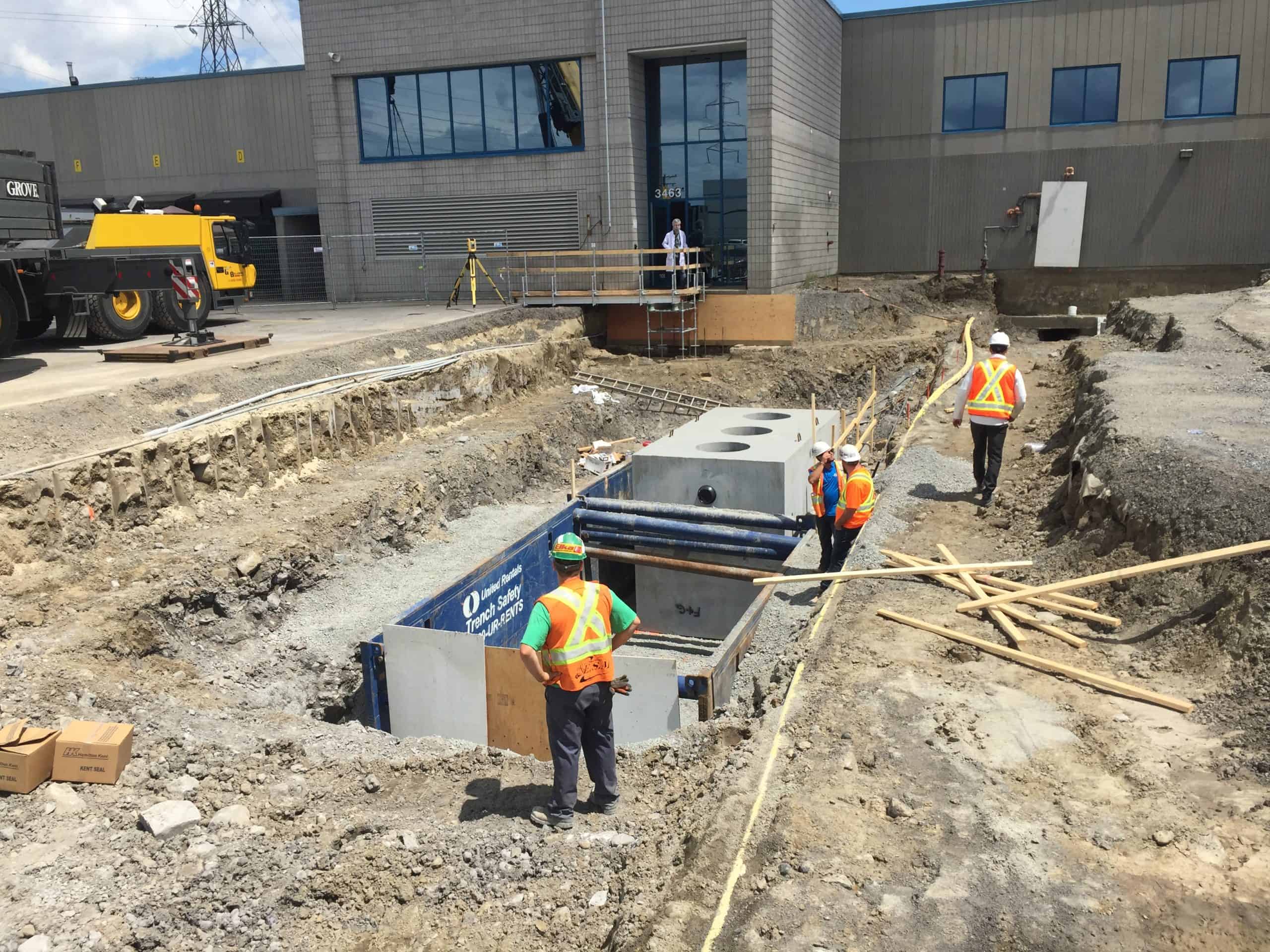You have a construction project or a production capacity increase project? Don’t forget your Environmental Authorization!

You are well aware that any company processing agri-food products must comply with the various rules prescribed by the Environment Quality Act (EQA).
Thus, whether for reasons of technological or production modifications, or for increasing the capacity of your company (including a new plant), it is important that at all times your Ministerial Environmental Authorization (formerly called the “Environmental Authorization Certificate”) is compliant.
A new authorization or a modification to the existing authorization may be necessary for the operation and activities of a company in the following cases:
- Increase in production volume or capacity (including the new plant);
- Modification of the production process;
- Modification or replacement of production equipment;
- Modification of treatment systems for contaminant discharges and emissions in place.
According to Mr. Carl Genois, from the firm GKGI, a specialist in environmental regulatory compliance, “It is increasingly common to see municipal authorities refuse to issue building permits, as long as the environmental authorization (provincial authorities) is not issued. It is increasingly the case that some municipalities do not even consider the possibility of starting the analysis of the building permit application until this condition is met.”
Acquiring compliance documents or environmental authorization takes time, specialized resources, and involvement of the company’s management and operations personnel. Often several months, or even more than a year. This must be planned from the beginning of the project; otherwise, unpleasant surprises can be costly.
It is surprising to note, at the end of the complete exercise of an environmental authorization application, that despite the fact that the company has put in place effective accounting, managerial and operational measures, the members of management and those responsible for operations discover and understand their operations even better. The development exercises, material and water balances, energy consumption, modeling of atmospheric dispersion of contaminants, acoustic propagation, behavior of the water table and analysis of waste treatment chains bring a high level of knowledge that would not have been otherwise acquired.
According to Mr. Genois, “The Ministerial environmental authorization must be rightly considered as an intangible asset for the company.” This legal document confers several advantages when it comes to considering the sale (or acquisition) of the company or the financing of growth projects. It is increasingly required by legal advisors or other professionals who are consulted during the usual due diligence for this type of transaction.
“A company that holds such an up-to-date document also confers a certain ‘peace of mind’ to the company’s directors who are legally and personally responsible for environmental issues that may arise in the course of operations.”
The Ministerial environmental authorization represents a snapshot of the regulatory compliance situation at the time it was issued. Contrary to popular belief, the concept of vested rights is no longer as certain, or as vested, as it has been in the past. Thus, updating the conditions dictated by this authorization, or the risk of encountering environmental non-compliance, always remains a possibility for the company.
A good Environmental Monitoring Program (EMP) adapted to the conditions established in the authorization combined with an annual environmental report to the directors, remain the best tools for evaluating the company’s performance in terms of regulatory compliance. The preventive or corrective actions put in place build the best arguments for responsible conduct (as the popular expression goes, acting as a good father would). Let us not hesitate here to document the actions to give ourselves solid bases and arguments for the company’s goodwill to do things correctly. These are logical bases and common sense. We never know if or when we will have to discuss them.
Know that the relationship with the specialists, analysts and administrative managers of the Ministry of the Environment (MELCCFP) is not as painful as some may think. Of course, it is a rigorous exercise, but often, when the relationship with them is cordial, frank and open, common sense emerges and the conclusions of the final agreement are not as coercive as what was apprehended at the very beginning.
It is strongly recommended to enter into direct communication, via a preparatory interview, with the MELCCFP analysts to clearly present your project, your methodology for deploying the documents and studies to be submitted in the authorization application procedure in order to make them feel your dynamism and your intention to do things well. This approach facilitates the study of the file and guides you towards the right actions to take. It often allows to reduce the time for issuing the authorization.
Our pre-construction department can thus support you on the various activities necessary for the application of environmental authorizations.
Do not hesitate to contact our teams who will ensure that all the bases are covered before the start of work on the site.
Luc Cusson, ing. and MBA Carl Genois, ing.
Frare Gallant Ltée GKGI
(514) 971-9344 (418) 952-0697